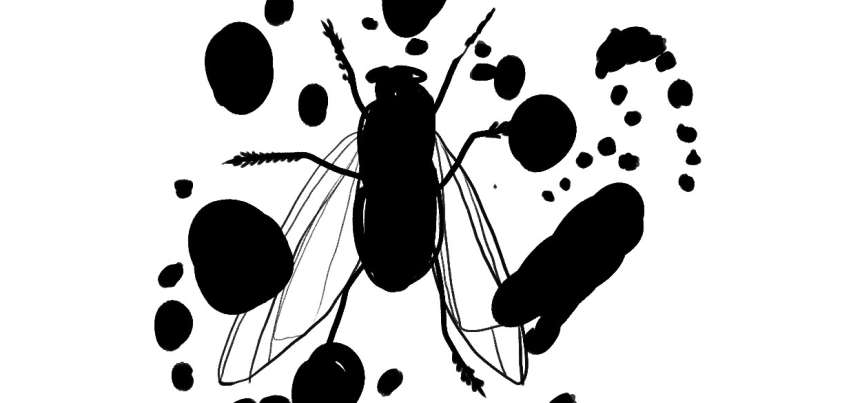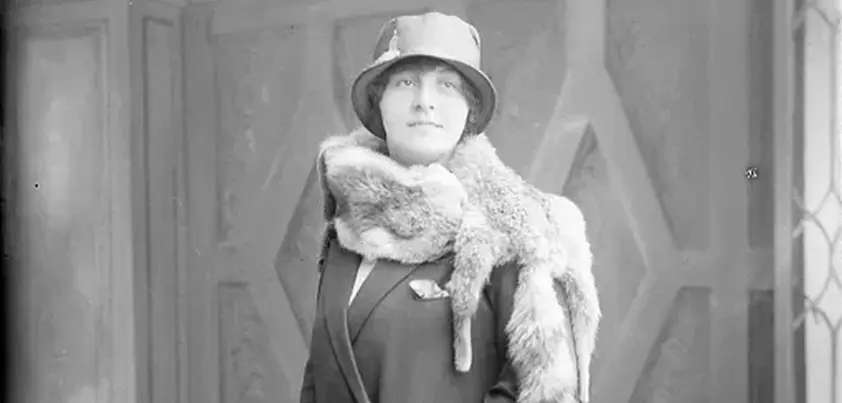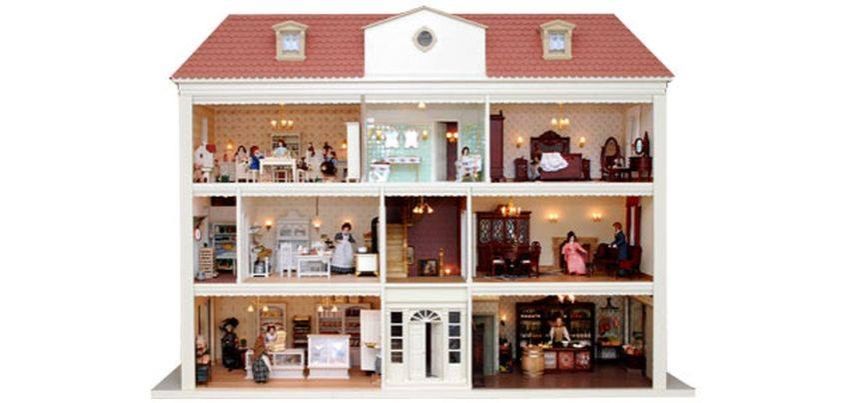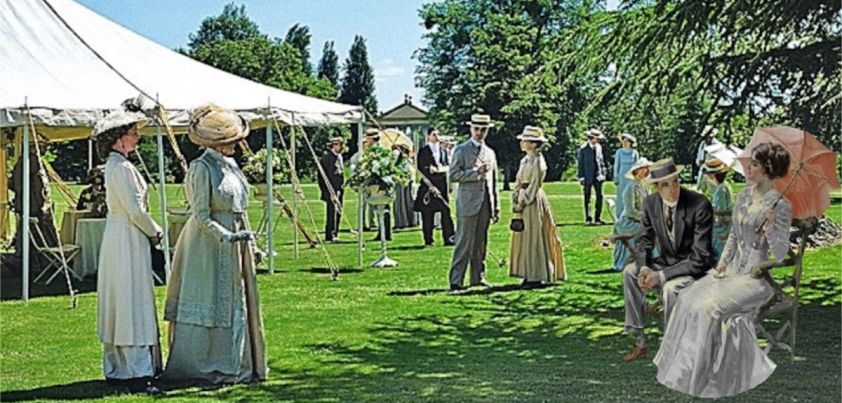 Although written in a lighthearted tone, this innocently titled story from Katherine Mansfield deals with some big issues. Its major theme is the materialism, hypocrisy and vanity of the British upper class. The desire for a “cup of tea” symbolizes the one similarity (womanhood) between a young beggar and middle-aged socialite. One is poor, desperate and astonishingly pretty; the other rich, entitled and not exactly beautiful. The socialite’s reason for wanting to help the girl was to show how compassionate she is. However, she soon realizes this may highlight a less favorable difference between them. Other themes: appearance, jealousy, insecurity. More…
Although written in a lighthearted tone, this innocently titled story from Katherine Mansfield deals with some big issues. Its major theme is the materialism, hypocrisy and vanity of the British upper class. The desire for a “cup of tea” symbolizes the one similarity (womanhood) between a young beggar and middle-aged socialite. One is poor, desperate and astonishingly pretty; the other rich, entitled and not exactly beautiful. The socialite’s reason for wanting to help the girl was to show how compassionate she is. However, she soon realizes this may highlight a less favorable difference between them. Other themes: appearance, jealousy, insecurity. More…
Archives
The Fly
 Katherine Mansfield‘s The Fly is about death, grief and aging. Two old men handle their sons’ wartime deaths differently. Six years have passed. Mr Woodifield, in poor health physically and mentally, has come to terms with the loss of his son. “The boss”, healthy and successful, still grieves… but not for his son. He laments the sacrifices he made in preparing the boy to take over his business, and shows his true character by torturing a fly. This leaves him feeling wretched and frightened. Could the fly’s struggles have reminded him that even the strongest (himself included) eventually die? More…
Katherine Mansfield‘s The Fly is about death, grief and aging. Two old men handle their sons’ wartime deaths differently. Six years have passed. Mr Woodifield, in poor health physically and mentally, has come to terms with the loss of his son. “The boss”, healthy and successful, still grieves… but not for his son. He laments the sacrifices he made in preparing the boy to take over his business, and shows his true character by torturing a fly. This leaves him feeling wretched and frightened. Could the fly’s struggles have reminded him that even the strongest (himself included) eventually die? More…
Miss Brill
 Katherine Mansfield’s Miss Brill is a lonely middle-aged woman for whom the highlight of the week is a Sunday visit to a city park. She occupies herself by eavesdropping on strangers who share her “special” bench, listening to the brass band, and people watching. On this day, she is wearing a favorite fur stole (scarf) and imagines that the park is a huge theatre performance in which she is a central character. The dream is shattered and her day ruined when she overhears some unkind words from her imaginary heroes. Themes: reclusiveness, loneliness, habit, aging, fantasy vs. reality, disillusionment, retreat. More…
Katherine Mansfield’s Miss Brill is a lonely middle-aged woman for whom the highlight of the week is a Sunday visit to a city park. She occupies herself by eavesdropping on strangers who share her “special” bench, listening to the brass band, and people watching. On this day, she is wearing a favorite fur stole (scarf) and imagines that the park is a huge theatre performance in which she is a central character. The dream is shattered and her day ruined when she overhears some unkind words from her imaginary heroes. Themes: reclusiveness, loneliness, habit, aging, fantasy vs. reality, disillusionment, retreat. More…
Bliss
 In this story from Katherine Mansfield, a thirty-year-old wife and mother who marvels at her joyful, upper middle-class life learns the meaning of the proverb ignorance is bliss. Throughout the story, which takes place over a single day, she seeks to identify the source of her happiness. Over dinner with some artistic friends, there is an indication that it may be linked to a new friendship with a female guest. Strangely, this results in her first ever strong sexual desire for her husband. Alas, her lust and bliss are soon shattered. Themes: happiness, modernity, sexuality and desire, deception, adultery. More…
In this story from Katherine Mansfield, a thirty-year-old wife and mother who marvels at her joyful, upper middle-class life learns the meaning of the proverb ignorance is bliss. Throughout the story, which takes place over a single day, she seeks to identify the source of her happiness. Over dinner with some artistic friends, there is an indication that it may be linked to a new friendship with a female guest. Strangely, this results in her first ever strong sexual desire for her husband. Alas, her lust and bliss are soon shattered. Themes: happiness, modernity, sexuality and desire, deception, adultery. More…
The Doll’s House / The Washerwoman’s Children
 Today we are featuring two stories from New Zealand: The Doll’s House by Katherine Mansfield and its sequel, The Washerwoman’s Children, written in celebration of Mansfield’s centenary by Maori writer Witi Ihimaera. In the first story, a family friend gives a magnificent doll’s house to the children of a well-to-do family. Their mother allows them to invite all but two of the girls at their school to come and see it. These girls (sisters) are shunned and teased by the other children because of their mother’s lowly job. Themes: imagination, class, prejudice, peer pressure, bullying, kindness. More…
Today we are featuring two stories from New Zealand: The Doll’s House by Katherine Mansfield and its sequel, The Washerwoman’s Children, written in celebration of Mansfield’s centenary by Maori writer Witi Ihimaera. In the first story, a family friend gives a magnificent doll’s house to the children of a well-to-do family. Their mother allows them to invite all but two of the girls at their school to come and see it. These girls (sisters) are shunned and teased by the other children because of their mother’s lowly job. Themes: imagination, class, prejudice, peer pressure, bullying, kindness. More…
The Garden Party
 Because of the complex issues raised, this is one of Katherine Mansfield’s most highly acclaimed stories. A wealthy family enjoy an ostentatious garden party in the spacious grounds of their mansion, fully aware that the father of a poverty-stricken family living within hearing distance died in an accident earlier the same day. Only one family member (a teen-aged girl) is sensitive to the poor family’s plight. She visits the house to offer condolences, and experiences an epiphany when unexpectedly ushered in to view the body. Themes include social class (class-consciousness, pretention, insensitivity towards others), poverty, innocence, humanity, coming of age. More…
Because of the complex issues raised, this is one of Katherine Mansfield’s most highly acclaimed stories. A wealthy family enjoy an ostentatious garden party in the spacious grounds of their mansion, fully aware that the father of a poverty-stricken family living within hearing distance died in an accident earlier the same day. Only one family member (a teen-aged girl) is sensitive to the poor family’s plight. She visits the house to offer condolences, and experiences an epiphany when unexpectedly ushered in to view the body. Themes include social class (class-consciousness, pretention, insensitivity towards others), poverty, innocence, humanity, coming of age. More…